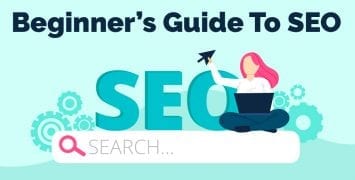Search engine optimization or SEO is a great digital marketing instrument when used properly. Over 60% of viewers now come to websites after searching for the information they need on search engines. Not optimizing your site for SEO is a mistake since you will miss out on a lot of potential customers and a steady stream of viewers.
Of course, search engines are now much smarter. Sites are ranked based on more metrics, including user experience and mobile-friendliness. Unfortunately, many sites (and site owners) do not adapt to the changes made by search engines. They end up making mistakes and hampering their SEO performance.
The biggest mistakes are the easiest ones to avoid. There are common mistakes that could ruin your campaign in 2018. We are going to talk about them and discover how you can avoid making the same mistakes in this article.
Using Only One Keyword
The most common SEO mistake you can make as a site owner is targeting only one main keyword and simply neglecting the rest of the spectrum. Your site may perform really well for that one keyword, but you still miss out on thousands of viewers by not appearing in more search results.
Targeting only one keyword also leads to another common mistake, and that is using a generic keyword. You shouldn’t aim for a generic keyword unless you have the content to back the campaign up. Instead of wasting resources on generic keywords, find long-tail key phrases that the viewers actually use to search for information.
Targeting the Wrong Keywords
Speaking of targeting generic keywords, choosing keywords that don’t relate well to the audience is also a common SEO mistake among site owners. When researching for keywords, think the way the target viewers think. Forget about what YOU want; SEO is not meant to satisfy your personal requirements.
You want to use words and phrases that the audience actually use. For example, choosing between “auto insurance” and “car insurance” can make a world of difference depending on the target audience you want to reach.
It is even worse when the content is not connected or relevant to the selected keywords. We’ll get to this in a second.
Keyword Spamming
Even in 2018, there are so-called SEO experts who think that spamming a page with keywords will get that page indexed quicker. They expect the page to perform well SEO-wise too. If this how you approach SEO, prepare to be very surprised.
Check any up-to-date SEO guide and you will instantly learn about the penalties Google and other search engines now impose on sites that still use outdated tricks like keyword stuffing. Instead of getting a good rank, your site will disappear from search results completely. That’s counterproductive, isn’t it?
Forget about keyword density and adding as many keywords as possible to titles and other elements. That’s not the point of modern SEO. You need to focus more on relevance and readability. The keywords need to blend right in for them to be effective.
The Wrong Content
Relevance is indeed very important. Choosing an irrelevant keyword for a page, adding irrelevant keywords to parts of the content, and targeting irrelevant keywords just for the sake of getting traffic are all mistakes that need to be avoided if you want to have a successful SEO campaign.
Irrelevant content is just as bad. If you think adding any article to the site to gain an SEO advantage would work, you are mistaken. Search engines now take relevance very seriously. You want to stick to one big topic if you are serious about SEO.
Relevance also matters in off-site SEO. There is no point in getting 1,000 backlinks if your URL appears on an irrelevant page. You can achieve so much more with one or two backlinks from a highly relevant, highly authoritative site.
Copying!
Let me give you one of the best pieces of SEO advice I ever received: never copy, even from yourself. Duplicate content is an enemy of your site’s SEO performance. As soon as crawlers detect duplicate content, you will see a steep dive in how your site ranks.
I was serious when I said you must not copy content from yourself. Many site owners spread the same article across multiple online properties to save costs. This may seem like a good idea at first, but copying content actually hurts all of those sites more than you realize.
Copying content from a bigger site is also catastrophically bad. Unfortunately, having your content syndicated by other sites will produce the same negative impact. You should rewrite content meant to promote your site to avoid this.
No Meta Tags
I know, it is silly, but there are thousands of sites without proper meta tags these days. Sites developed using a template may even have “Untitled Page” as the meta title. Adding meta titles and descriptions to a page is a must. These tags tell crawlers so much about the actual content of the page. They also appear in search results, so the last thing you want is a page titled “Untitled Page.”
Other tags are just as important. When adding images to your site, make sure you add a description to the alt tag. Crawlers can’t really see images, so they rely on the alt tag to know what the images are about. Use this tag properly, and you’ll start getting traffic from image search engines too.
Bad User Experience
As mentioned before, user experience is a substantial metric to track these days. Search engines use user experience or UX as a way to determine if a site is good. They take metrics like time-on-site, bounce rate, number of pages visited by each user, and others to determine if your site is worth displaying in search results.
User experience is also about mobile-friendliness; well, cross-device compatibility to be exact. Your site will be accessed by more smartphone and tablet users than ever before, so making sure that they can browse through the site comfortably is a must. Optimize the site for mobile users and you will even see a jump in SEO performance by a substantial margin.




